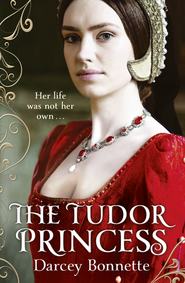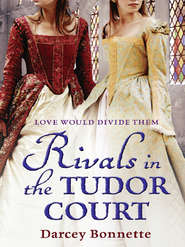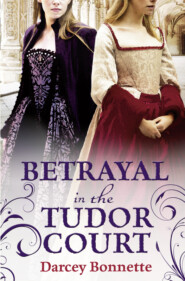По всем вопросам обращайтесь на: info@litportal.ru
(©) 2003-2025.
✖
The King’s Mistress
Настройки чтения
Размер шрифта
Высота строк
Поля
“No one, really,” I say. “Sometimes we brush each other’s hair or a servant will, but everyone is so busy—”
“Come here,” he says, sitting behind his desk once more. I realize for the first time that he has been standing the entire night as well. I wish he would offer me a chair. He doesn’t. He calls for a brush with hard bristles. Once it is produced, he gestures for me to come to him, then removes my hood and turns me around. With hard, relentless strokes he brushes through my thick golden hair, pausing to detangle snarls without care of the fact that I feel my scalp is being torn from my skull.
“This is a mess,” he says, using his fingers to detangle some of the snarls. “You are not the comeliest creature—take pride in your redeeming features.” When he can’t detangle certain stubborn snarls, he pulls at them so hard that they come out in clumps that he drops to the floor beside me. My scalp aches. Each hair seems to have its own individual complaint.
At last—between the pain in my legs, feet, and head—I begin to cry.
“Stop it this instant,” he commands. Immediately it is as though some force has pulled my tears inward, sucking them inside my eyes. My head feels full. My body feels full, full of tears and anguish I dare not expose.
The ordeal takes an hour. When he is finished he puts down the brush and smoothes my hair with his hands. “It glows with a fire from within.” He turns me around to face him. “When you come tonight we shall do it again.”
“Which part?” I ask, dread pooling in my gut.
“All of it,” he says. “You should be flattered that I condescend to such matters, but as no one else seems to be able to fill the capacity, including yourself, I shall have to. I can’t abide you running about court like a peasant.”
“I am … most humbled and grateful, sir,” I tell him, longing to douse my head in hot water to assuage the pain.
“You are dismissed.”
I curtsy and quit the room, knowing that with the demands of the day I will have no opportunity for rest, and praying he will not keep me up the entire night again.
There must be some way to find peace.
As I trudge toward Anne’s apartments I hear someone whisper my name. At first I think my overtiredness is causing delusions, but when it persists I turn my head to find the musician Cedric Dane peering out from a doorway.
“Good morrow, Mistress Howard,” he says with a smile. “How are you?”
My heart is racing. I pray my cheeks are not flushed. “Master Dane, a pleasure to see you. I am well, thank you.”
“Can you spare a moment?” he asks.
I know I should attend Anne, but my feet remain rooted in place. I wrestle with my conscience but a moment, before following Cedric into a chamber where there are many various instruments: virginals, a lute, a harp.
“We practice here,” Cedric tells me. “At least it resembles practice.” He sits behind the virginals and begins playing effortlessly, a haunting melody that calls to mind lost love and distant dreams.
“It’s lovely,” I tell him. “Is it your own?”
“Yes.” I admire how he does not have to look at the keys. That is something I am working on as yet. He regards me with a carefree smile. His eyes, those strange, violet-tinged eyes, sparkle. I feel a bubble of laughter catch in my chest.
“It needs a bit of work, though,” he says. “I haven’t any words to it yet. Tell me what you envision when you hear it.”
I close my eyes, allowing the melody to envelop me. “The sea. Rolling waves, a calm blue sky … a ship … it is a lovely scene but sort of melancholy. It is good-bye. A man has left his maid …” I bow my head and know from the heat of my face I am flushing furiously.
“Why did you stop?” Cedric asks.
I avert my head, unable to meet his eyes. “Mayhap it is a little … I’m not sure …”
“Mistress Howard, please. Continue,” he urges.
I raise my eyes to him to find his head is bowed toward the keys. His eyes are closed and he weaves subtly in time with the tune. He is a musician in complete harmony with his song.
“I—I see the maiden. She stands alone on shore, bidding her lover good-bye.” I swallow. I am caught up in my scene. “Somehow she knows his voyage is perilous. She will not see him again.”
“Tragic,” says Cedric. “But beautiful, as tragic love tends to be. Leaves you blissfully unsatisfied, yet somehow there is a perverse pleasure in the agony of it all.”
I never thought of it like that. Perhaps I have witnessed too much agony to find it pleasurable. Or I have not witnessed the right kind.
“Will you sing for me, Mistress Howard?” he asks. “Put verse to your story. Breathe life into my song.”
“I can’t—”
“Come now.” He chuckles. “You’re not afraid.”
“Yes,” I admit. “My voice might grate on you.”
“It might,” he says. “But I promise I will tell you.”
I giggle. “I am not good at verse on the spot.”
“Not many people are, save your brother, I hear.”
“Henry?” I arch an eyebrow.
“I had the privilege of keeping company with him and the Duke of Richmond of late. Your Lord Surrey is a wonderful poet— a hot-tempered boy, but a gifted writer with a great deal of heart,” he tells me.
“Boy!” I cry.
“He’s no older than you!”
“He’s a boy,” he says.
“And you’re not?” I tease.
“That’s for you to learn.”
“Master Dane!” I cry, scandalized.
“Forgive me, Mistress Howard,” he says. “I grow too comfortable in your charming company.” He clears his throat and continues playing. “Now. Do enlighten me with a few verses.”
I pause a long while, allowing images and words to whirl in my mind and take form. It is a creation in itself, writing verse, and I envisage the Psalmists feeling a similar exuberance when composing God’s Word. I am tingling with inspiration. Slowly but in a clear, low voice, I begin.
“O happy dames … that may embrace the fruit of your delight.” Tears fill my eyes. “Help to bewail the woeful case and eke the heavy plight …” I take in a breath. “Of me, that wonted to rejoice the fortune of my pleasant choice: good ladies! Help to fill my mourning voice …”
I trail off, unable to continue. Cedric stops playing. He is staring at me.
“Where did that come from?”
Embarrassed, I avoid his eyes. “I—I don’t know.”








